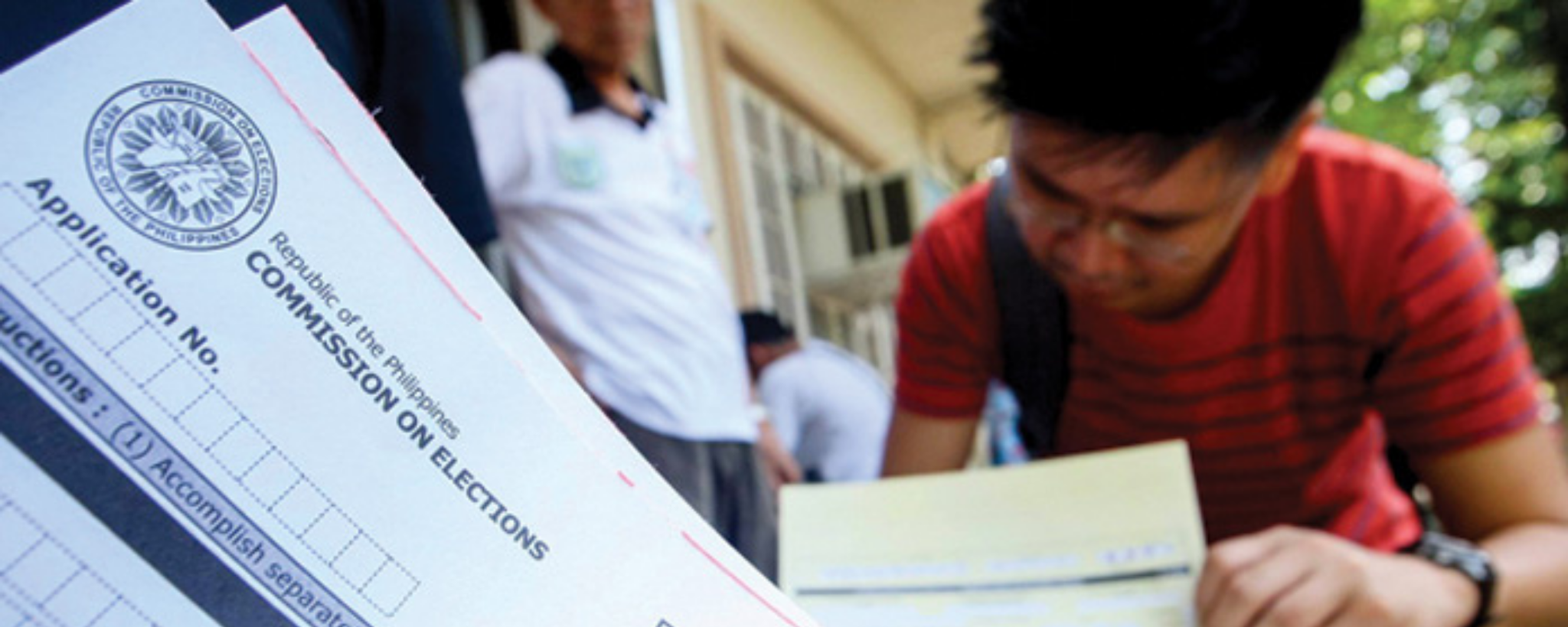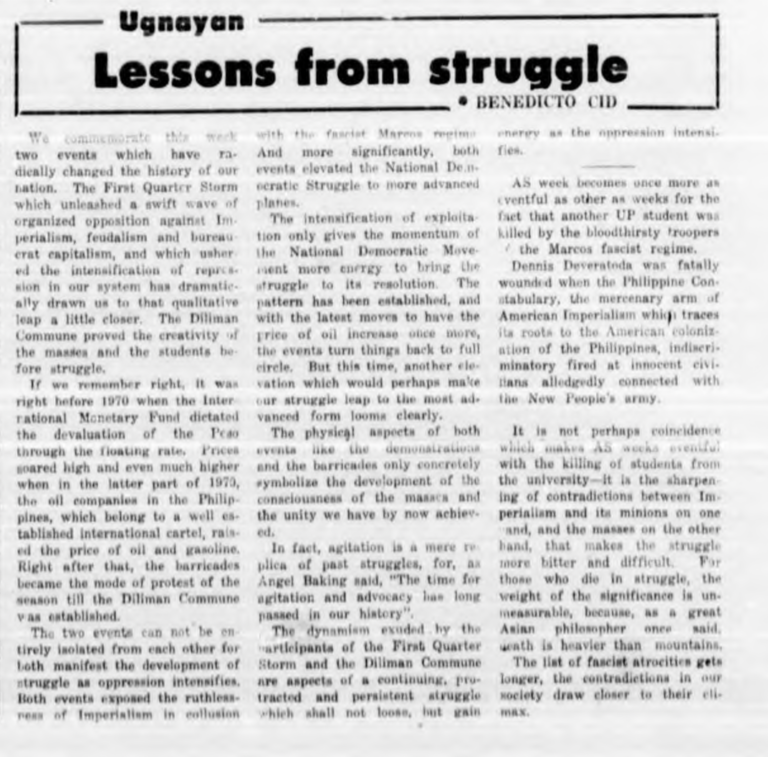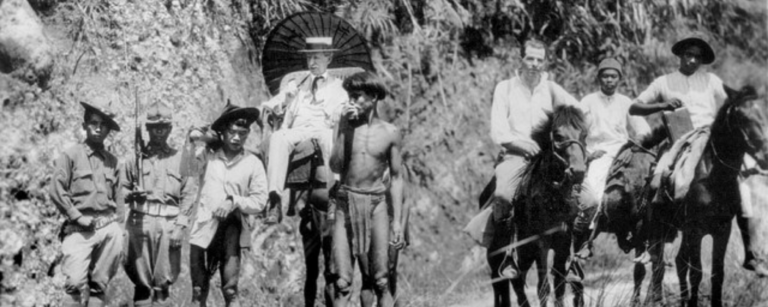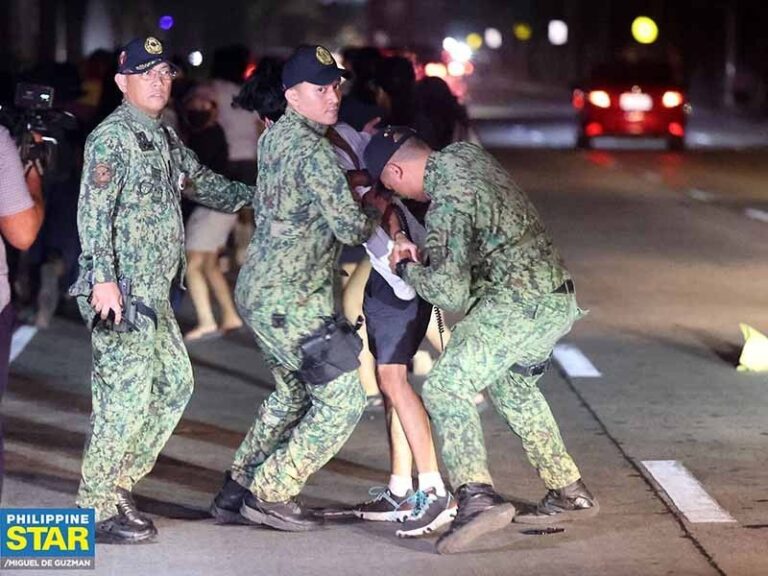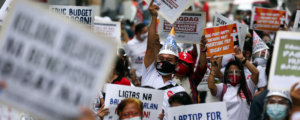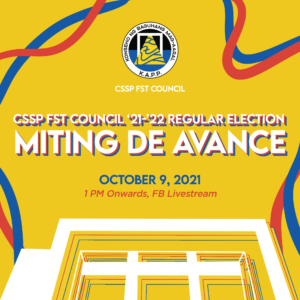
There are two understandings of what ‘Youth Vote’ is. First, it is the portion of voters who are between the ages of 18 and 30. Second, it is the potential of the young people to vote critically in the hopes of seeing the genuine and progressive change in our political climate.
Supposedly, the youth have a wider vision and more open minds to vote for those truly in service of the Filipino people and not the so-called “trapos” who we only hear from whenever elections are approaching.
The first understanding of what the youth vote is clear. However, there is confusion and ambiguity in the second understanding because it is often assumed that the young are highly critical. In this view, the youth is considered a bloc vote.
This is a wrong assumption for there is no bloc vote from the youth sector. The vote of the Filipino youth is far from being solid and predictable.
First, the machinery of these trapos is strong, and with money, they can gain support, attract a large portion of the youth, and employ them temporarily for the election. Second, the quality of education is not consistent and the youth’s access and exposure to reliable information are not equal. There are young people, especially in far-flung areas, who have limited knowledge gained from mass media, digital media, or the internet.
In hindsight, we don’t have a special reliable youth vote to deliver change. However, with the young people’s physical strength, passion, and determination to improve the country, the youth has the potential to make an impact and a difference when it comes to electing our government officials. The youth’s participation can make the system better.
“Tangan ng kabataan ang responsibilidad na isulong ang politika ng pagbabago at pag-asa,” said in a speech delivered by Kabataan party list Representative Raoul Manuel after filing of certificate of nomination of acceptance (CONA) for a seat in the House of Representatives.
Voting is a valuable right. It can shake up major political parties, change the dominant parties, and make the politicians aware of the issues or concerns they had bypassed. As the May 2022 elections are fast approaching, it is important for the youth to be reminded to do their part and participate in the electoral process. As we aspire to elect progressive public officials, it is our duty to become registered voters and to make sure we won’t let those who failed to lead our pandemic recovery response to be offered a seat ever again.
“Extension is from October 11 to 30; Monday-Friday, no Saturdays, except for the last day (October 30), 8 am to 5 pm. All registration services offered,” Comelec spokesperson James Jimenez said on Wednesday, September 29.
Featured image courtesy of UNTV News

